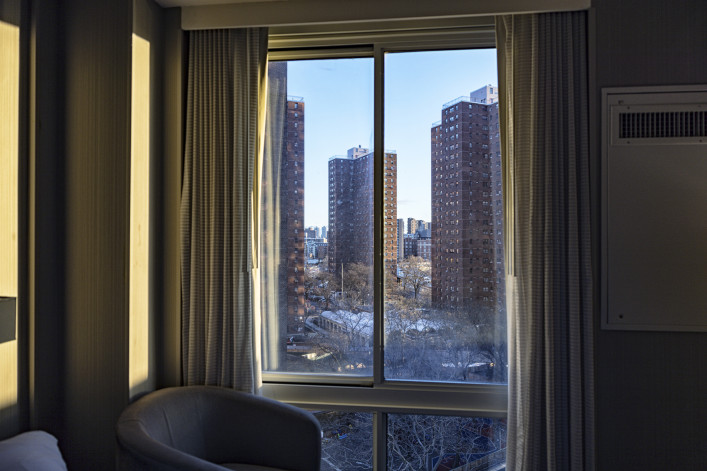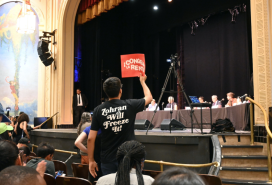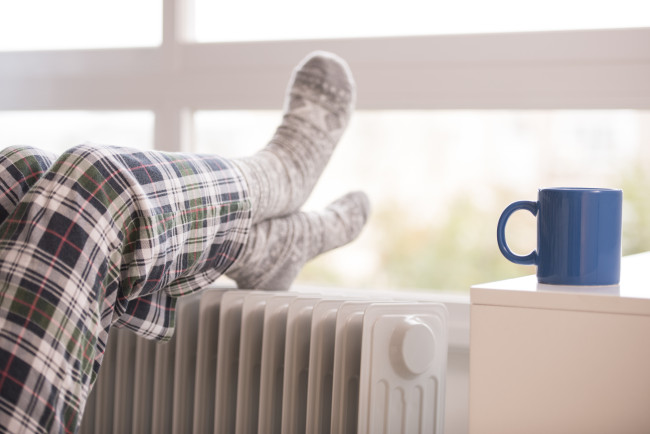The heat is blasting in my apartment, and it’s making my cats sick and preventing me from sleeping. What can I do?
- Tenants with places that too hot do not have the same protections as those who lack heat
- You could try to negotiate a rent abatement, though your landlord may not give you one
- Form a tenant’s association to address building problems with the owner more effectively

If the heat forces you to leave your apartment, you could argue that you were constructively evicted.
iStock
The heat in my apartment has been on nonstop for the past week. It’s consistently over 80 degrees inside, even with all my windows open and the AC running. It’s gotten so bad that I have trouble sleeping, and it’s making my cats sick. I can’t shut off my radiator because the knob is painted over. I called the super, and I know other residents of my building have complained as well, but so far he hasn’t shown up. What can I do to get my landlord to fix and compensate me for the situation?
You may be able to negotiate a rent abatement with your landlord if the apartment is truly uninhabitable, but it could be an uphill battle, according to our experts.
Before you head to the negotiating table, make sure you’re documenting the conditions in your apartment. Keep a log of how hot it is each day, how many times you’ve called your super, and how long the problem has gone unaddressed.
It also might be helpful to know how hot the apartment gets without your windows open and your AC running—if you can bear it, says Ellen Davidson, a staff attorney at The Legal Aid Society.
[Editor's Note: Realty Bites tackles your NYC rental questions. Have a query for our experts? Drop us an email. We respect all requests for anonymity.]
File a complaint
Your next step should be to call 311 to file a complaint with the Housing Preservation and Development department, though the city usually responds to violations of the Housing Maintenance Code. You can call 311, send in a complaint online, or contact HPD through the app 311Mobile.
Unfortunately, there’s not a legal maximum on how hot your apartment can get, so there may not be much HPD can do, Davidson says. (HPD did not immediately respond to a request for comment).
If your landlord and super still don’t respond, you could ask your landlord for a rent abatement to compensate you for the conditions in your apartment, though your landlord may not jump to give it to you.
“You can always negotiate with your landlord and ask for a discount in rent because of conditions in your apartment,” Davidson says. “Whether or not your landlord will give that really depends on the situation.”
Sweated out
An overheated apartment could be a violation of the warranty of habitability, an implicit set of requirements expected in every New York City lease. If the heat forces you to leave your apartment, you could argue that you were constructively evicted—pushed to leave because of your landlord’s failure to fix the heat, says Justin Brasch, a partner at The Law Offices of Justin Brasch.
“You could argue that it could be dangerous to your health and safety and you had to leave. And if you had to leave, you have a real claim for a rent abatement and constructive eviction,” Brasch says.
For example, if your landlord failed to provide heat during the cold winter months, you could argue you were forced to leave your apartment to survive. But proving that an apartment is too hot could be a tricky task, especially if the disagreement heads to court, Davidson says.
“In the summer, [80 degrees] is a reasonable temperature,” Davidson says. “I’m not sure a court would find that a person couldn't live there.”
Talk to your fellow tenants
You could also withhold rent, or file an HP action with the court system to compel your landlord to make necessary repairs to the heating system. But both are likely to get you involved in a lengthy and often expensive legal battle, and Davidson doesn’t recommend withholding rent in this case since a court may side with your landlord.
A better strategy might be to organize with your fellow tenants. You could approach your landlord as a group, or form a tenant’s association. A tenant’s association also could help split the cost of legal fees if you do decide to take your landlord to court, and your right to form the organization is protected under the Housing Stability and Tenant Protection Act of 2019.
“It's always good to take collective action when there's a problem that affects all apartments,” Davidson says. “A group of tenants could bring the case and housing court against the landlord as a group which is always more powerful.”






























